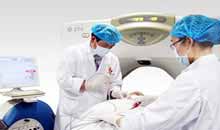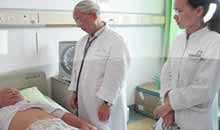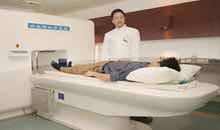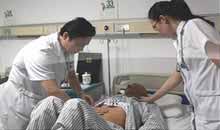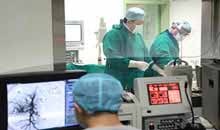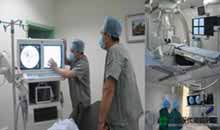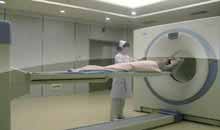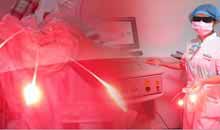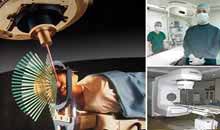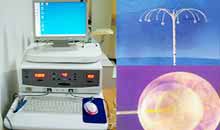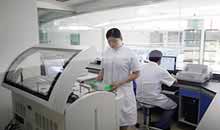If you are unfortunate enough to have a cancer, but the doctor told that you still can receive surgical treatment, then, please calm down and think about it: should I thank God for at least, I have the chance for survival. Give yourself a little more preparation and confidence, and then you would know that after the storm the sun will be more brilliant.
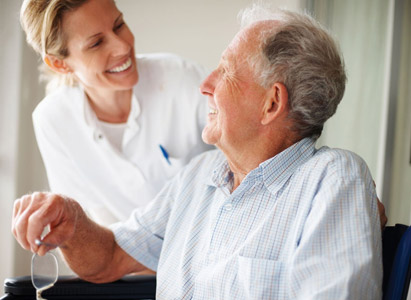
The things you need to do before the surgery are:
Do inspections to determine that your physical condition is suitable for surgery:
Before surgery, you need to do the following check sto determine whether the body can withstand anesthesia, and whether post-operative physical ability can be well resumed or not:
1. Blood tests to detect your general health status and renal function;
2. Chest X-ray to detect whether lung is healthy;
3. Breath test (lung function testing);
4. ECG ( electrocardiogram) to detect cardiac function;
5. the dynamic ECG detection;
6. other detection.
Take medication to cooperate with surgery:
In many cases, the therapeutic effect of cancer surgery is certainly related to patient's physical quality. The patient's physical condition is good and has strong immunity; this would slow down spread of cancer cells, and make the patient be able to tolerate various treatments. Therefore, take some medicines before surgery, such as the ginsenoside Rh2; improve the patient’s immune function; enhance the activity of T lymphocytes, NK cells and IL2; all these can contribute to patient’s improvement of tolerance to surgery and resistance to tumor.
There is documentary evidence to support that the modernization of traditional Chinese medicine product -- ginsenoside Rh2 has the function of inhibiting cell proliferation of breast cancer, melanoma and liver cancer and inducting the differentiation. Good clinical response for patients before surgery can shrink the tumor and reduce the surgical area, so that the patient's quality of life has also been guaranteed. For patients after surgery, it can speed up the recovery of the body, but also because of its inhibitory effect on cancer cells, it can effectively prevent recurrence and improve prognosis. Of course, patients also need to regularly take the medicines prepared by the doctors.
Breathing practices and leg exercise
After surgery, doctor or physical therapist will guide you to do some exercises. These exercises are good for the body; therefore, patients must do more exercise and can start the exercise before surgery.
Breathing practices are helpful for chest infection prevention. For patients who smoke, if they quit smoking at least a few weeks before the surgery, it will greatly decrease the risk of chest infections.
The leg exercise help prevent deep vein thrombosis (blood clots) formed in the lower extremity. It can also be prevented by drugs (subcutaneous injection of a small amount of heparin). Generally speaking, the heparin shall be injected before surgery and lasted until several post-operative weeks. The doctor may ask you to wear compression stockings.
Chest infection and blood clotting may occur, because you are no longer to act the regular activities like before. The nurses will encourage you to walk around as early as possible after surgery. Cancer surgery, after all, is a big surgery, therefore, before that, you may have to stay in bed.
Surgical details informed:
When you are ready to be hospitalized to undergo surgery, surgical doctors, anesthetists, physiotherapists and nurses will come to inform you of surgical details. The surgeon will explain to you how he will perform your surgery, and what circumstances you will face when you wake up from the anesthesia. Whatever questions you have, directly consult the doctor. Make a list of your questions prior to admission, this may be helpful. The more you know, the fear of surgery will be less. If you have a new question, do not worry: you can ask the nurses, if they cannot answer it, they would find your doctor to explain to you.
If you have any questions, please contact us via online consultation, email or phone call. If you find our website useful, please follow our FaceBook and YouTube, health information will be updated regularly.



